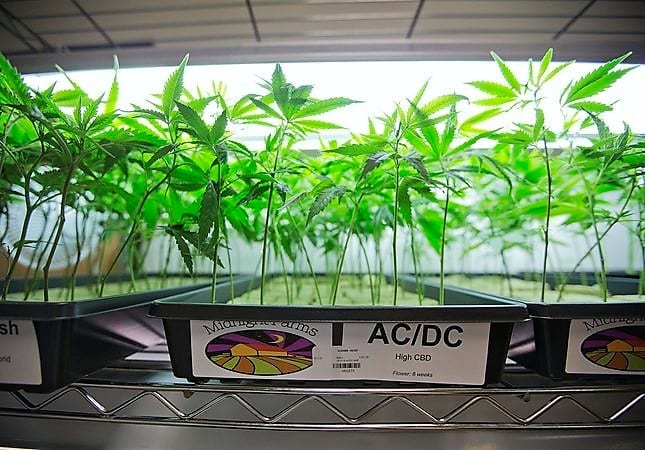Silicon Valley is home to some of the first recreational pot shops in California.
But not in Santa Clara. The Mission City passed a moratorium on commercial pot two months ago — after voters approved a measure legalizing recreational sales — and now lawmakers want to extend the ban.
“There’s not enough time, really, to do all of these activities and come back in front of the council and have ordinances adopted and have them be adopted before the moratorium expires,” assistant city manager Ruth Shikada told city lawmakers last week. “So rather than to rush through the process, we will bring back another extension of that moratorium, or whatever else the council desires, to move back the June 30 date.”
Mayor Lisa Gillmor, after hearing from City Council colleagues, Shikada and the public, agreed to an extension.
“We probably will have to do that, I imagine,” Gillmor said.
When the state legalized recreational cannabis sales on Jan. 1, San Jose opened one of the first recreational dispensaries in the state — Buddy’s Cannabis. But not every city in Santa Clara County has been as eager for the pot market to fire up.
Santa Clara passed a moratorium on commercial cannabis activities in November, which will expire on June 30. The Milpitas City Council, similarly, voted unanimously to ban cannabis-related businesses and personal outdoor growing in December.
Both cities outlawed marijuana despite the fact that voters overwhelmingly approved ballot measures legalizing sales.
“I appreciate that we have time now to do the right thing, “ said Councilmember Kathy Watanabe. “I know it’s not an easy task, but if we’re going to do it right, let’s do it right.”
City leaders urged Santa Clara lawmakers to take the time to research regulations and conduct outreach on how and where the businesses can operate in the city.
Santa Clara voters in November passed Measure M, which authorized the commercialization of marijuana by imposing up to a 10 percent tax on cannabis sales and a $25-per-square-foot tax on cultivation space. City officials say the measure will generate about $2.2 million annually.
The city is looking to establish regulations “that preserve the health and safety of the community,” ensure compliance with state regulations and reduce or eliminate black market cannabis sales, according to city documents.
Councilwoman Teresa O’Neill told San José Spotlight she “doesn’t know where some of the others stand” on opening commercial cannabis in Santa Clara, but “there’s not on my part an attempt to stop it.”
“Part of it is getting new council members up to speed and allowing more community input,” O’Neill said. “The process is ongoing. I’m not going to be supportive of someone stopping the process, but we have to identify every place where we can’t have these commercial spaces.”
In addition to extending the ban, city officials also recommended limiting the number of cannabis stores to just three initially, and collecting tax revenues quarterly.
“They’re trying to have a nice balanced approached, and if it takes a little bit longer, and they have to extend the moratorium, that’s fine,” said Sean Kali-rai, president and founder of the Silicon Valley Cannabis Alliance. “Although we always love to see things move faster, I think when a city is planning on reasonable regulation that it makes sense to have a moratorium until you get that in place.”
Will Armaline, a local human rights advocate and San Jose State University professor, criticized the decision.
“I don’t really know what the purpose, or incentive, or public good, is in calling for a moratorium,” Armaline said.
“We’re finding this push-back from some conservative communities in a few cities,” Armaline added. “I understand why that would be the first thing you think. Like, ‘let’s keep this out of here,’ you know? ‘Our kids will be better off.’ But unfortunately, that’s just not the way it works.”
Armaline said that while other California cities rake in tax revenue from commercial cannabis sales, areas under moratoriums lose out on that extra cash. And, Armaline added, bans intended to keep cannabis out of underage hands are “counterintuitive.”
“It’s going to get in through the black market where you actually are more at risk of more young people having access,” he said.
Santa Clara officials did not specify how long the proroposed moratorium extension would be. It’s unknown when the item will return to City Council for consideration.
Reporter Nadia Lopez contributed to this report.
Contact Kyle Martin at [email protected] or follow him @Kyle_Martin35 on Twitter.



Leave a Reply
You must be logged in to post a comment.